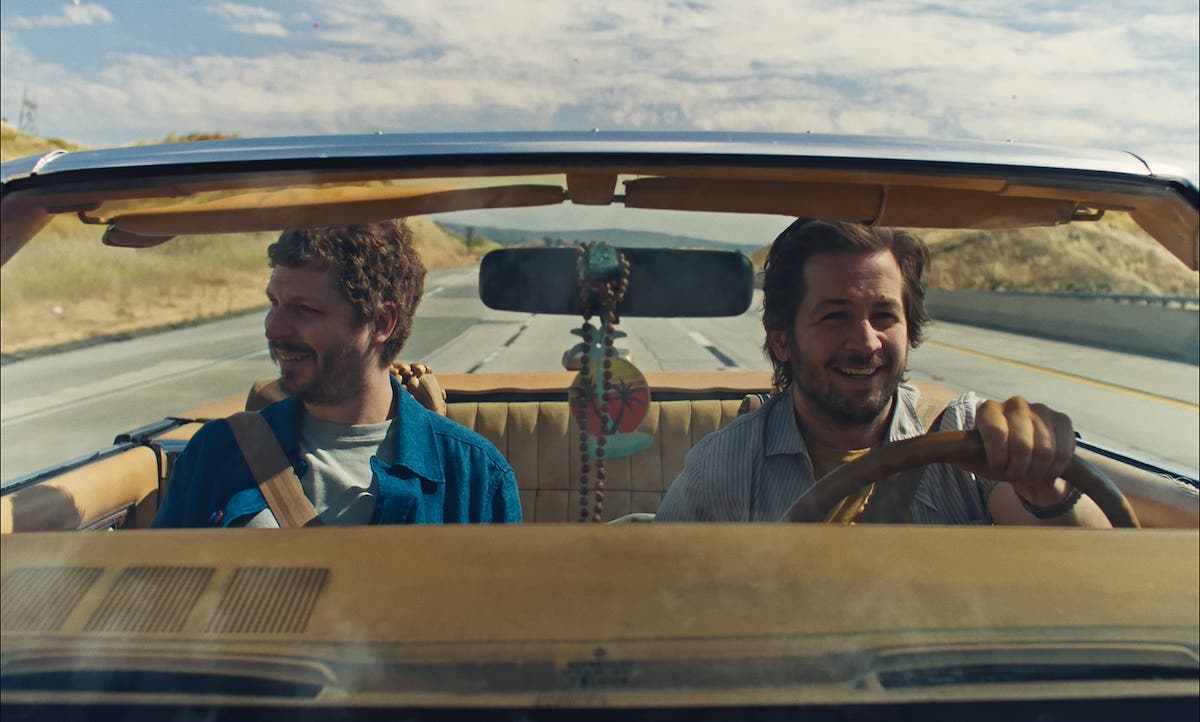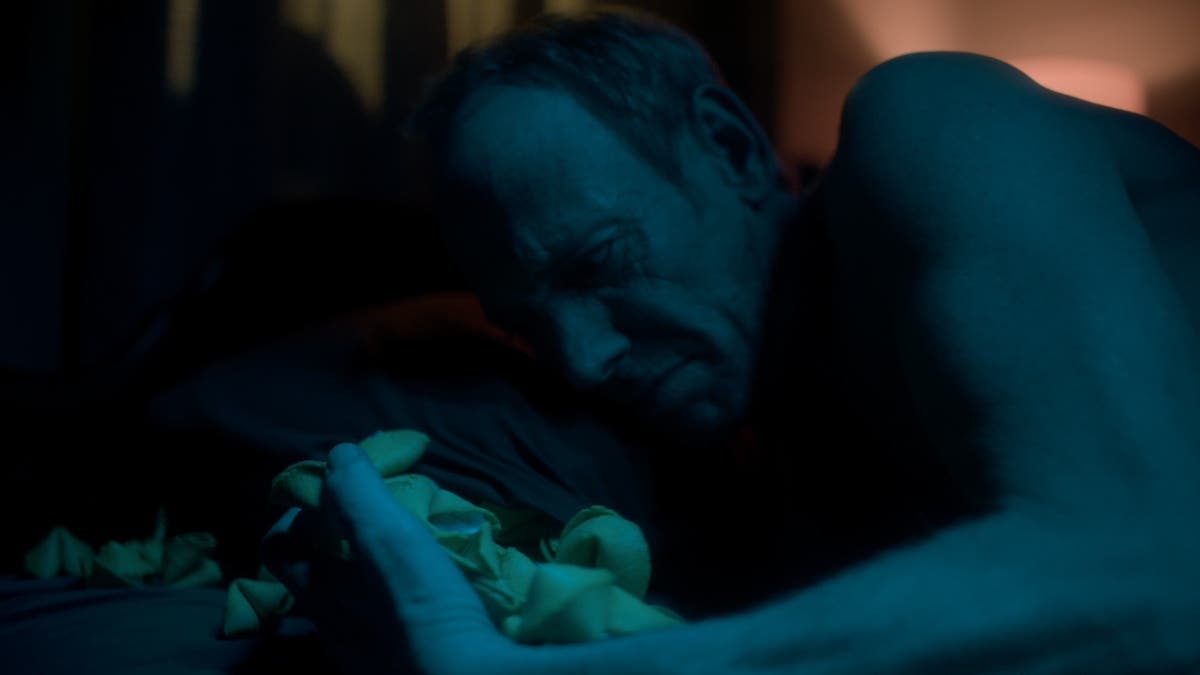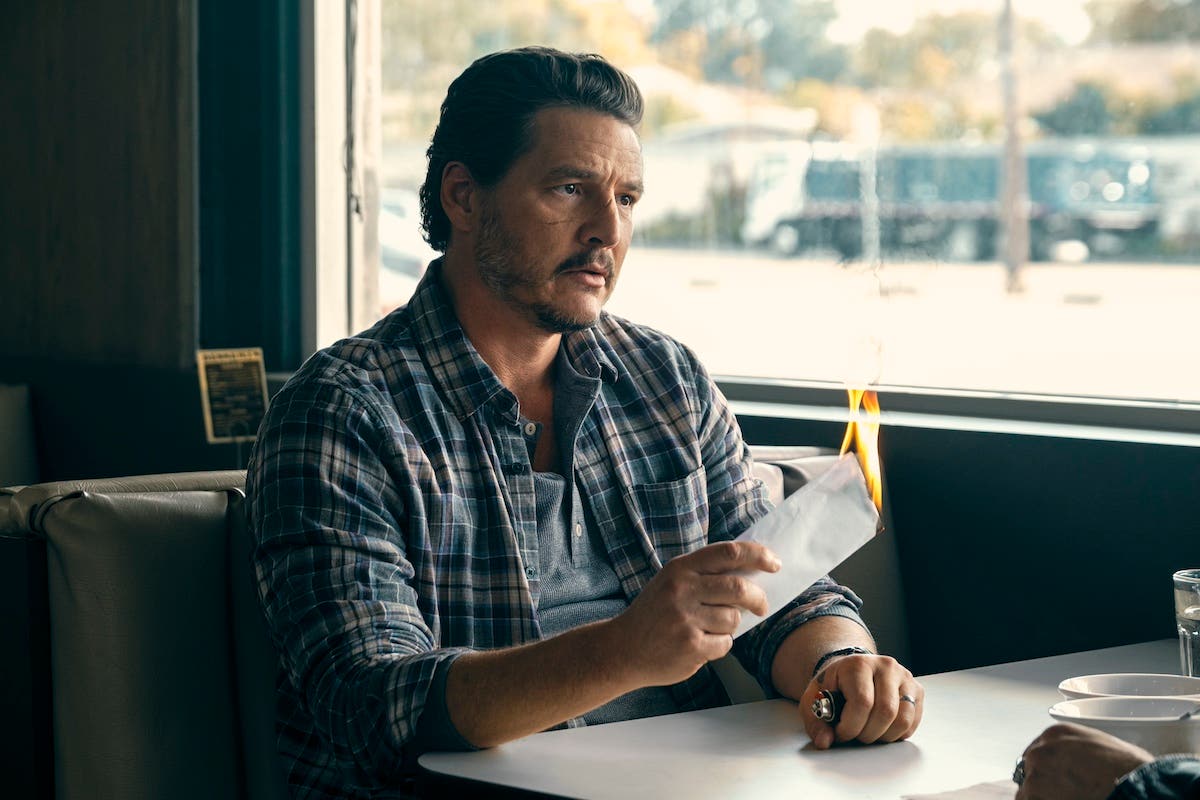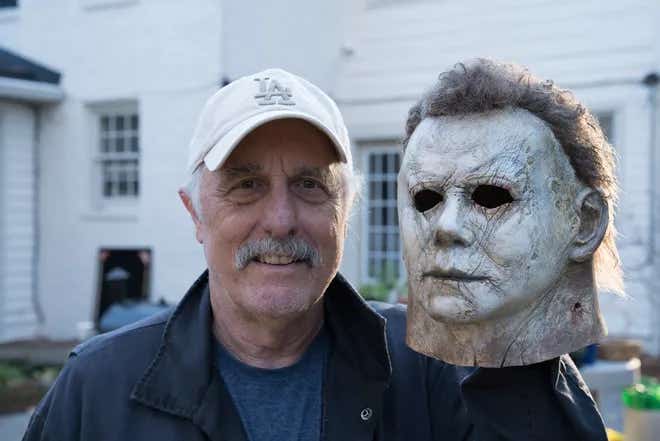Q&A: ‘If We Left’ Producer & Screenwriter on Bringing Real Life Heroes to the Screen
Script Magazine speaks with the producer and screenwriter of ‘If We Left’ about collaboration and the challenges of bringing a heartfelt real-life story to the screen.
Jeanne Veillette Bowerman is the Editor of Script Magazine and a screenwriter, having written the narrative adaptation of the Pulitzer Prize-winning book, Slavery by Another Name, which was honored in the Top 25 Tracking Board Launch Pad Features Competition. Follow Jeanne on Twitter @jeannevb.
Imagine you’re a cook or a janitor working in a nursing home riddled with problems and violations, but you need the job so desperately you stay. Now imagine the state suddenly shuts the facility down and all the workers abandon these helpless elderly patients. Would you leave, too? Or would you be tormented by what would happen to those innocent people if you left?
This is the decision Miguel Alvarez and Maurice Rowland faced when the rest of the staff at Valley Springs Manor walked out. This cook and janitor stayed, unpaid, to ensure the safety of the people they had come to love.
"There was about 16 residents left behind, and we had a conversation in the kitchen, 'What are we going to do?'” Rowland said. “If we left, they wouldn't have nobody,” Alvarez said.
The decision we make under pressure defines our character. What better characters to follow through a journey than Miguel and Maurice, which is precisely what producer Miles Maker@milesmaker, along with screenwriter Andrew Burrows-Trotman@ABTrotman, are doing in their feature film If We Left.
Full disclosure: I’ve known Miles for years but have never met Andrew. As soon as Miles told me of Andrew’s qualifications and background, I knew he was the perfect writer for the gig. I asked if I could speak with them both about pursuing a real-life story, collaboration on a passion project, and the challenges of bringing this heartfelt story to the screen.
JVB: Let’s start at the beginning, Miles, what drew you to this story?
Miles Maker: I was immediately drawn to the simplicity of this story. It’s so easy to communicate and so pleasant to process on a basic human level, and it’s so inspiring to hear about people feeling good and wanting to share it. Movie concepts desperately need talk-and-share potential to rise above the noise.
I was also drawn to the heroes in this story because they look like me—we share some of the same life challenges. But for me, this premise represents a new creative direction, because I’ve always been attracted to dark narratives with tormented anti-heroes plagued with inner demons. Yet everyday people are at the core of all my character exploration, and in this story two everyday heroes made a very conscious and challenging decision to do the right thing. But of course it takes more than a character challenge to make a great movie, and when I started tracking the news and researching the chain of events that occurred I knew without a doubt a compelling narrative existed before even considering any fictional elements. When California legislators passed the Residential Care For the Elderly Reform Act late last year, I knew it was time to approach the guys about adapting their experience.
Andrew, what made you throw your hat in the ring for consideration as this story’s writer?
Andrew Burrows-Trotman: I was drawn in for the same reasons that the national media covered the story so heavily. I was inspired by the way these fellas undermined stereotypes, by their selflessness and by the absurdity of how a home full of seniors could inexplicably slip through the cracks. This entire fiasco had all the elements of great cinematic drama and the fact that it's a true story still blows my mind.
On a personal level, I am currently home-caring my own mother who has dementia so I am a big advocate for elder care reform. As an only child, I shudder at the thought that my own mother could very easily have ended up in a shit hole like Valley Manor. It makes me lose sleep at night.
Since it’s a true story, what different concerns or obstacles present themselves to you as a producer?
Miles: My immediate concern was securing life rights from Maurice and Miguel. As an indie producer your greatest fear when approaching life rights subjects is perception—perhaps they’re expecting some Hollywood hotshot to show up with a suitcase full of money in hand and expecting an A-list star to play them. You have to introduce yourself, build a rapport, talk about the process of developing a script and packaging it to try and make the movie—and present them with the sobering reality that after two years of hard work, the movie may never get made. Honesty wins when you’re an independent producer so you keep your fingers crossed that you’re talking to someone who can discern the difference between someone blowing smoke up their ass from someone with transparent intentions.
Knowing it’s a true story presented other concerns—like someone simply writing the script based on public information that’s readily available and beating you to the punch by getting it financed and into production before you. A screenwriter had already penned a script but failed to seek rights from Maurice and Miguel, which sounds predatory to me. I was advised by more than a few lawyers that I didn’t need to acquire their life story rights—I could just pen the script, but I couldn’t imagine doing a film like this without involving our heroes both factually and financially. To that end, I beat a competing producer for their life rights—someone who had already extended a deal offer before I made my introduction. But I won out because that producer didn’t establish any kind of relationship—it was just wham bam here’s my deal offer.
By contrast, Maurice and I talked for hours by phone first. I gave them a film school 101 producing from script to screen overview in layman’s terms, so they could comprehend and value and respect the hard work I was asking them for the opportunity to do on their behalf. We talked about authenticity and getting the story right. We talked about various scenarios for getting the movie made. Then I presented them with a 24-month action plan to share everything I wanted to do with their life rights so they would understand why it takes so long to make a movie. Realistic expectations.
In the meantime I asked them to please not sign any other deal—but that ask wasn’t necessary because by then they were already on my side. They were rooting for me to be the producer the way viewers will be rooting for them in this movie. I was relieved to discover these are the same loyal men that stuck around for people in need at the assisted living home when it all went down, and I’m fortunate that they stand for something more than just a payday. So after all that, I presented them with a deal offer and explained every what and why about every element of the contract before advising them to find a good lawyer. But even though we were all on the same page, it took six months to close our 6-page deal. Fucking lawyers!
Do you have advice to writers or producers trying to obtain rights to true stories?
Miles: This process has excited my interest in true stories. But the challenge is knowing whether or not you have a movie, and then coming to terms with how much fictionalizing you’re going to have to consider. Because if you’re going to be 100% accurate you might as well make a documentary because movies are a different animal. You’re dramatizing events—restructuring them in some cases, condensing the timeline, taking characters you didn’t obtain the rights to depict and redefining them in your script. Some characters don’t make it in your movie at all, while others become an amalgamation, representing a handful of real people or even an idea or an obstacle for that matter. You need to envision a clean narrative, knowing every story element must pave the way for that remarkable journey your life rights subject will make.
This isn’t easy because real life is much messier than fiction, so you need to pickup the mess to see that narrative in your mind’s eye—complete with cinematic moments to decide if the story works on paper and on screen. I wouldn’t approach anybody about making a movie about them until I’ve done that, so when you finally sit down and talk, you communicate a thoughtful approach to the adaptation even though you’re still missing the beautiful details. You must already be absolutely sure you’ve got enough movie.
Andrew, I was watching you interview Miguel and Maurice, and Miguel’s outpouring of emotions brought tears to my eyes. What was it like for you getting to know these men?
Andrew: It was a little nerve racking to be honest. I wanted to make a great impression and fit into their world and I was trying a little too hard at first. I kept blanking on the questions I had prepared weeks in advance. Even though, I come from working class roots and have known my fair share of poverty, I still felt like an anthropologist descending from his ivory tower into East Oakland. After a while, I just stopped trying to control the situation, got out of my own head and just relaxed. The bourbon we were drinking helped too!
Bourbon is the perfect icebreaker! They clearly have to put so much trust in you with not only their story but also their emotional journey. It must be scary for them. Did you have concerns about that level of trust, and are they letting you explore their lives outside of the nursing home or stick to just filming within the facility?
Andrew: Maurice and Miguel were both so humble and forthcoming. They understood that I was going to dig into their lives and that some of my questions would be very personal. I took things slow and thankfully what could have been very uncomfortable became a cathartic experience for all of us. The biggest challenge interviewing film subjects is getting past the veneer that we all naturally paint of ourselves. We tend to cover up our blemishes but nobody's interested in watching a movie about perfect people doing perfect things.
I will definitely be exploring Maurice and Miguel's lives outside the nursing home. Miles and I agreed very early on that we have to let the story breathe a little outside of Valley Manor. One thing that came across very clear during the research is how much Maurice and Miguel love Oakland so East Oakland and San Leandro will be a major part of the script, a supporting character of sorts.
How did you find Andrew Burrows-Trotman? What was the “thing” that made you know he was the writer to tell this story?
Miles: I met Andrew through Film Independent (FIND). I was a Project Involve Fellow in 2013 and I’ve stayed in touch with the organization for advice and suggestions and support. Francisco Velasquez, Mel Jones and Angel Williams are invaluable in this regard. So when I told Francisco I was close to a deal, we discussed writer recommendations from FIND. I told Francisco I intended to search far and wide for a talented non-union writer—knowing that would also generate attention for the project, and he supported that.
Yet before I even got home from our meeting, I received a call from Mel Jones, who also went through the PI program (Project Involve). Mel is Stephanie Allain’s producing protégé. For those who don’t know Steph, she’s the Director of the Los Angeles Film Festival and has been championing stories since the early 90s. Think Boyz N Da Hood, Hustle & Flow, Dear White People, Beyond the Lights. Mel didn’t call to pitch me a handful of writers—she called to pitch me ONE writer and all the reasons why he was the guy for the job.
I wasn’t anywhere near ready to make a decision, but Andrew called, and we talked for about two hours the first time. Then we met—it might have even been the same day. By that time I knew he was a very strong consideration—AFI screenwriting grad, a disciplined writer, a pure writer (not a multi-hyphenate director or actor) and old enough to appreciate the material for what it is. It didn’t hurt that he’s also a writer of color, which is not only beneficial to understand Maurice & Miguel, but also important for the packaging of this project. This business is all about perception, and that includes audience anticipation. I’ll be frank—if I hired a white writer there would be a helluva lot of backlash in the black and brown creative community. But thankfully the best guy for the job was also the right guy for the job. His samples were exceptional. He not only ‘gets it’ in terms of my vision to produce this story, he also has the patience and personality temperament to work with a producer like me. This is important for collaborative storytelling. I’m opinionated about the material, demanding of both time and attention and I’m high energy—I’m always working. When someone doesn’t compliment my passion and intensity, I tend to start questioning the association altogether.
As a fellow screenwriter, what advice do you have for our readers in terms of collaborating on the ground level of a project?
Andrew: In my experience, when I trace back why a collaboration failed the roots of the problem can almost always be found in the nascent stages of development. Everyone's so passionate in the beginning about telling a particular story that we rarely take the time to be clear how we want to tell that story. As a result my approach now is to focus on communication with whomever I'm working with. Communication is more than just expressing my opinion; it's listening, asking questions and accepting criticism. I'm very fortunate to be working with a true creative producer that has clearly expressed his vision for this film with an infectious passion. We also share very similar sensibilities when it comes to this project so it's been smooth sailing so far. We'll see how well things go once I've delivered the first draft!
From the producer’s perspective, what’s your collaborative process in working with Andrew?
Miles: Andrew has plenty of latitude. He’s off writing the script right now. But we know where it’s going—we talked through screenplay structure together, because I’m producing this film and I know what kind of film I want to make. It’s also because this is a true story adaptation, so it was important to establish where the story begins, ends, and the all-important beats along the way. But Andrew is the sole screenwriter. He’s also very much in demand right now on the TV side, so I didn’t want him to waste unnecessary time on drafts when I could have saved him from heading in a direction I wasn’t going to ultimately sign off on. I’m also on a tight timeline of my own to start pimping the first draft around town, so a focused efficient approach to what the story will be was important going in. So we did all the script prep together in terms of story research and interviews with our heroes—then hammered out our story structure over three days of L.A. coffee shop meetings. From there Andrew went off on his own to do what he does best.
What about the elderly characters? Are you able to speak with them as well or will you have to fictionalize some of them? If so, do you have concerns about that?
Andrew: I would love to be able to speak with the elderly that went through this experience but that won't be possible for an assortment of reasons. All the information I have about the residents were from stories Maurice and Miguel told about them, so in essence I will be building these characters from more fiction than reality.
This doesn't worry me, my Mother was a nurse and I spent considerable time as a kid in nursing homes. I also have two Aunts aged eighty-eight and ninety-three that I see often so I feel like I've got a deep well of experience with the elderly to draw from. I think people will get a kick out of some of the senior characters in this script, they definitely won't be the same tired old clichéd elderly we're used to seeing on the big screen. They will be fully realized, dimensional beings.
Tell us about forming your team? How has it differed than other projects you’ve worked on?
Miles: I don’t chase people anymore. At least not unreasonably. Independent films come together because like-minds attract to the material with a genuine interest to create something special. If I have to harass the shit out of you, haggle for your participation or emphatically convince you my project is worth your while, I don’t care who you are or what you may potentially bring to the table—you’re not the one I should work with on it. We’re all in the business of chasing people who are out of reach because we believe their involvement will enhance perception and deliver a result we may not be able to accomplish on our own. But I know enough about project development and producing in general—enough to be dangerous. I can take someone’s passion and productivity and utilize them for exactly what the project needs, so I’m more about the path of least resistance with an eye for pedigree in the best interest of the picture. My overall strategy is always momentum.
What’s the hardest part for you in adapting If We Left and the unique challenges that make it so different than writing a fiction piece?
Andrew: The hardest part about adapting a true story is letting go of the burden of truth. Of course facts are facts, but we can easily strangle our creativity if we get too bogged down in dogma. I've adapted historical material before but none of the characters in those scripts were still alive so I didn't have to worry about offending anyone. We owe it to our subjects to tell their story as its been told to us but we also owe it to them to tell an entertaining and engaging story that holds an audience's interest.
My goal is to capture the spirit of Maurice and Miguel's story more so than capturing supposed facts. In the end I believe they'll get over not liking their portrayal, as long as the movie's good!
What’s your biggest concern as the producer in getting this made and seen by the masses?
Miles: Raising the production budget. There’s no other facet of this business I feel inadequate about than securing equity investors.
How can people help you with your vision beyond donating?
Miles: We’ve got strong senior care organizational support for development counsel for the material. We also have some talented and amazing story moguls to provide script support as we pursue a final draft. But we can always use social sharing—word of mouth, bloggers, media coverage from outlets like Script Magazine. But even simply visiting our campaign and clicking one of the share buttons to Facebook or Twitter or Google+ or e-mail helps a lot.
Influencers don’t have to be famous or have huge social followings. One share can lead to a donation from someone you know, so please share our campaign and donate if you can! Even $1 helps, and every donation will be applied to development and production—even if we don’t reach our total goal, because this movie WILL get made.
Your short film, The Great Commission, was on Showtime – an impressive accomplishment. Will this be your first produced feature? What are your hopes for the long-term journey of If We Left, and what do you want the audience to feel as they walk away?
Andrew: Thank you for the kind words. If We Left will be my first produced feature and I'm currently in the midst of writing the first draft, so as tempting as it is to dream of festival screenings and theatrical releases, I have to stay in the moment and till the fertile soil that's been provided to me. But I will say that I do hope that If We Left raises awareness regarding elderly neglect and that it moves people to call or visit their elderly loved ones more often.
Follow Miles on Twitter: @milesmaker
Follow Andrew on Twitter: @ABTrotman
Follow If We Left on Twitter: @IfWeLeft
Follow If We Left on Facebook
If We Left IndieGoGo Campaign
Get advice onn adapting true stories from Erik Bork,
writer/producer of HBO's 'Band of Brothers'
Finding the Story in True Stories Webinar
Jeanne Veillette Bowerman is a Senior Executive at Pipeline Media Group and Book Pipeline, Editor-in-Chief of Pipeline Artists, Director of Symposium—a year-round conference in the arts, co-host "Reckless Creatives" podcast, partner at Fringe Press, former Editor-in-Chief of Script magazine and a former Senior Editor at Writer's Digest. Recognized as one of the "Top 10 Most Influential Screenwriting Bloggers," her "Balls of Steel" column was selected as recommended reading by Universal Writers Program. A compilation of her articles is now available at The Writers Store—Balls of Steel: The Screenwriter's Mindset. She is also Co-Founder and moderator of X's weekly screenwriters’ chat, #Scriptchat, and wrote the narrative adaptation of the Pulitzer Prize-winning book, Slavery by Another Name, with its author, Douglas A. Blackmon, former senior national correspondent of The Wall Street Journal. More information can be found on her website. X: @jeannevb | IG/Threads: @jeannevb_ | BlueSky: @jeannevb.bsky.social







